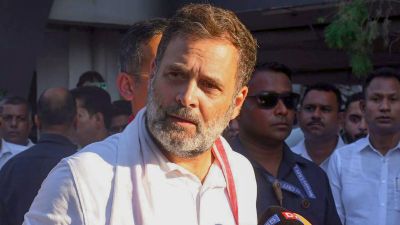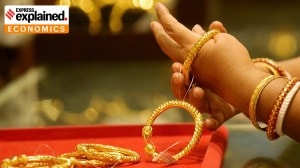Open societies. Closed markets?
George Soros argues that while society should be free, markets need not be so because they do not move towards equilibrium. But who is to decide that?

There is enough wealth behind him — $7.2 billion was the last estimate by Forbes, where he was ranked 71 among the world’s wealthiest people in 2006 — to get a topline audience in any country. So, it wasn’t surprising to see India Inc sitting up. Soros didn’t quite deliver — instead of the money manager par excellence sharing his investment strategies in the global space, the 75-year-old self-made billionaire-philanthropist talked about subjects as diverse as global warming, George Bush, open societies and his theory of reflexivity.
Soros wants more. Within his greatly successful financial and philanthropic mind there lurks an eagerness to be accepted as a thinker. Many successful women and men live through life and decide the coordinates that have got them their success, try and transplant those coordinates onto others.Unfortunately, it requires more than success to be able to theorise; not many are able to cross the line from ‘successful businessman/investor/philanthropist’ to ‘successful thinker’.
What I find contradictory about Soros’ theories is his urge to ‘control’ free markets. He is right when he says that financial markets are inherently unstable and there are social needs that cannot be met by giving market forces free rein. But it is beyond me how a man who has successfully used the free market system to create and give wealth, can say that free markets must be controlled. For free markets to deliver their best, they need to be just that — free.
His critique of free markets rests on challenging the assumption that they tend towards equilibrium. Which, he feels, is based on people behaving rationally. His weak mathematical grounding, he says, made him move away from crunching numbers to questioning assumptions. He is by no means alone: a whole field of behavioural economists led by Richard H. Thaler have reach the same conclusions in a more rigorous manner. Soros’ friend Joseph Stiglitz even got a Nobel in 2001 for “analyses of markets with asymmetric information”.
Soros argues that unlike science, in economics and society we deal with the future, so judgement or an element of guesswork, influences decisions. These biases affect the very fundamentals of the economic decision and are marked by disequilibrium. This is in contrast to the dominant ‘efficient market hypothesis’, propounded in the early 1960s by Eugene Fama of Chicago Graduate School, which asserts that financial markets are ‘efficient’, or that prices of stocks or properties reflect all known information and are therefore unbiased; they reflect the collective beliefs of all investors about future prospects.
While products like index funds have indeed shown this to be true somewhat, people like Warren Buffett, Peter Lynch, and Soros have broken the back of this theory many times over. Soros’ billionaire colleague Buffett has often been irked by academics not accepting his ‘theory’ of value investing based on seeking intrinsic worth of companies. He is peeved that academics call him an ‘aberrant’, even though he’s consistently beaten the efficient market. Soros — on last count, his Quantum Fund had delivered over 30 per cent per annum returns over 25 years, beating even Buffett by a couple of percentage points — perhaps reflects the same aspiration.
His theory of reflexivity sits on three legs. One, it is best observed under extreme conditions when the difference between reality and its perception is high, a booming market, for instance. Two, it works intermittently, so probability is another tool needed to work with, though Soros says “the idea of indeterminacy has been vehemently denied by social scientists who assert their ability to explain events by scientific methods” and the lack of firm predictions and satisfactory explanations can be “threatening to the professional status of a science”. Three, biases become self-fulfilling as investors participating in capital markets influence valuations andoutcomes.
I have no quarrel with any theory, least of all with Soros, who has based his views on the work of thinker Karl Popper, his teacher and mentor in London School of Economics in 1952. The problem, or contradiction, begins with ideas that say governments should or shouldn’t devalue their currency, should or shouldn’t control markets. Or even, while society should be free, markets need not be so because they do not move towards equilibrium. Who is to decide that? One man, one group, one state? What then would be the difference between the totalitarianism that Soros condemns and democracy he espouses?
While his criticism of markets is bang on — that they are inherently unstable — his suggestions to control them are problematic. His intentions are noble: “We need to broaden the debate,” he wrote in The Crisis of Global Capitalism. “Imposing market discipline means imposing instability, and how much instability can society take? Market discipline needs to be supplemented by another discipline: maintaining stability in financial markets ought to be an explicit objective of public policy.” That stability comes in the form of inflation and interest rate management, something central banks, including in India, are grappling with.
But control is a four-letter word in the evolution of markets. You can choose not to participate in the market, but just how would you control the decisions of millions of people, chasing trillions of dollars without in some way bringing in an element of repression? Maybe, Soros’ ninth book could explore that.






- 01
- 02
- 03
- 04
- 05
























